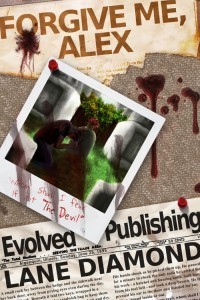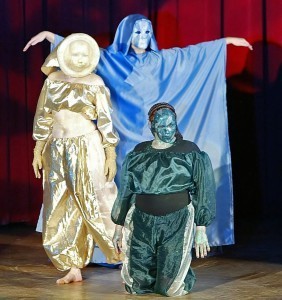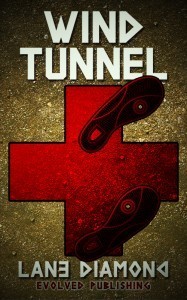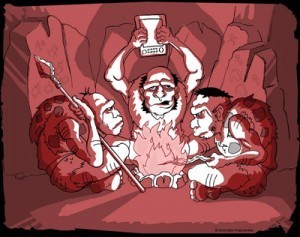Lane Diamond's Blog, page 18
October 12, 2011
Who has time to read for pleasure?
Like all writers, I came to writing through reading. I didn't kick my pleasure reading into high gear until 1980. I was serving in the U.S. Air Force at Ramstein Air Base in [West] Germany. I had time on my hands, sitting in my little efficiency apartment off base with no television and no phone in those pre-internet days.
I'd always been a proficient reader as a kid, but hadn't done much of it. Although I enjoyed a few exceptions exceptions, books tended to bore me, a sad alternative to playing outside with my friends. In 1980, no longer a kid running around the neighborhood, I looked to reading as a remedy for boredom. Wow! I realized just how much I'd been missing.
I started with Stephen King (and his alter ego Richard Bachman), because he was producing a lot of material and could keep me engaged. I also read everything Robert Ludlum had available. Indeed, after I made my first trip to Berlin, and actually went through Checkpoint Charlie into communist East Germany, espionage thrillers moved to the front of my reading list. Enter John LeCarre, Frederick Forsyth and others.
From that point on, I couldn't even imagine life without books, though I've suffered some downtime—gaps in my reading—on occasion. This, I'm sorry to say, is one of those occasions. I'm so busy writing my own book, and editing the work of several authors in our Evolved Publishing group, that I just can't seem to find time for pleasure reading.
Don't get me wrong; I'm thrilled that our publishing venture is about to rocket forward. Still, I miss the simple joy of reading without deadlines, without pressure to find every little word that doesn't quite work, without authors breathing down my neck like a bunch of….
Just kidding. Our authors are a fine, patient bunch. Nonetheless, I'll be glad to get past this initial big launch of our publishing venture (7-10 more books in the next 2-3 months). I'll be glad to relax at night with a snifter of cognac in one hand, a book or my Kindle in the other, and read for the shear escapist joy of it.
I'm curious: Which authors first hooked you on reading?
———-

October 6, 2011
Under the Heading of SHOW, DON'T TELL: Readers Can't See What Something Is "Not," They Can Only See What Something "Is"
If you're a writer, you've already heard this primary commandment of effective writing: Show, Don't Tell. Yet most writers say at some point, "Great! And just how do I do that?" Ah… if only one could offer a single, simple answer to that.
One example of violating this commandment is the placing of statements in negative form. E.g. John was not big. When you read that sentence, and you try to visualize John, what do you see? Right. Nothing. The words "not big" are vague and meaningless, and thus evoke no mental image. You must first decide what "big" even means, and then you must decide, by contrast, what "not big" means. That's too roundabout—never takes you to a clear image.
In my well-worn copy of The Elements of Style (Third Edition, Macmillan, 1979), by William Strunk Jr. and E.B. White, the authors state definitively on page 19, "Put statements in positive form."
Now, many people revolt against The Elements of Style because the authors take such a dictatorial approach to their lessons: you must do this, and you must not do that. Okay, so there's no such thing as a 100%-er; after all, writing is art, not science. Nonetheless, if you apply a dollop of common sense and a dash of critical thinking, and pay attention to how the human mind works, I believe you'll come to agree with most of what Strunk & White command.
In the case of negative versus positive statements, at least, they're dead on.
Reading is a visual experience. Now before you say, "Well duh, Diamond," let me clarify. Reading is more than just seeing words on the page, it's seeing the images those words represent. Your aim as a writer is to evoke those vivid images through the power of your words.
When you tell a reader what something is not, you've only told her what not to visualize. If you want to evoke that image, and tell the reader what she should see, you must tell her what something is. Let's revisit my simple example above:
John was not big, which contributed to his lack of confidence. As discussed, this is meaningless. We know what you're trying to say, but we can't see it. >>>>> John was small, and rather self-conscious about it. This is better, but still lacking. Five different readers will likely have five different ideas of what the vague "small" means. The good news is that they may visualize John in some way; the bad news is that they won't necessarily see him as you intended. >>>>> At 5'4″ tall and 132 pounds, John fought constantly to embrace and project his masculinity. See the difference?
You might be saying, "Wait just a minute, Diamond. It's not about negative versus positive, but rather vague versus specific." Actually, it's both. Imagine if I had said this: John was not exactly a 6'2″ strapping hulk, and thus fought constantly to embrace and project his masculinity. Once again, we have nothing to see. Indeed, it is impossible to say only what something is not… and be specific… at the same time. Specificity requires that you place the statement in positive form.
I'll leave you with this silly example to cement the point:
"Harry, what was it that broke through your front door and ripped your living room to shreds?"
Harry just stared at Tom.
"Please, Harry, I simply must know what the heck happened here!" Tom fidgeted on the edge of hyperventilation. "What was it? What did all that damage?"
"Well, it was not an aardvark."
'Til next time, and as always, remember: To write well, you must work hard. To succeed in this tough gig, you mustn't be lazy (or discouraged).
———-

October 3, 2011
Why I Didn't Want to Self-Publish and Go It Alone
I stopped submitting to literary agents in mid-2009, several months after the U.S. economy in general, and the publishing industry specifically, crashed. After I received my fourth agent response expounding the virtues of my book, how it was well-written and offered great potential, BUT… then going on to cite industry circumstances as the reason they couldn't represent it, I threw my hands up.
Since most literary agents have a policy that once they reject your manuscript, for whatever reason, they won't look at it again—even a couple years later—I stopped submitting. I didn't want to burn all those bridges, and I assumed the market would recover at some point.
Sure. For well over a year, I languished under the certainty that the world had ended.
People said, "Just publish it yourself." But self-publishing was a fool's game, an expensive exercise in self-esteem building. Self-publishers didn't make money, self-publishers lost money. There was a reason people had referred to it as the "Vanity Press." It had always been that way.
Then, in late 2010, light shined on the world again. A select group of self-publishers started making real money in the emerging eBook markets. By February 2011, I thought seriously about taking that route. By April, I'd decided to do it, but I hadn't quite figured out how.
That is to say, I hadn't figured out how to do it in a way that ensured at least a real possibility of success. What were my chances if I decided to go it alone? Not good. Daunting. Scary. After all, I didn't have a backlist, an established following, a famous, widely recognized name. I was John Q. Nobody.
I immediately fell back on what I knew about business, having almost 30 years of experience in business management: A well-coordinated, well-motivated, mutually rewarded team always outperforms the individual. Always.
Okay, so now I just needed to find a publisher in this new eBook environment. I needed one who wouldn't steal all my rights forever, or dictate everything from the title to the cover to where it would or would not be for sale. I needed one who wouldn't steal my money, or function under the misguided notion that I existed to support them, rather than the other way around—the right way.
Well, if such a publisher existed, I couldn't find it.
Thus, I talked to my eventual business partner, Dan Conklin, and we formed Evolved Publishing. It's 1 part publisher, 1 part authors' cooperative, and 1 part self-publishing on steroids—just the right mix. I often wish I could have found someone else doing what we're doing, because… frankly, it's a heck of a lot of work for very little money. Not to mention, it takes me away from my writing.
Still, I'm pleased with the way things are going. We're working with some great individuals. Yes, we've had a few growing pains, and we'll no doubt have a few more, just like any other business. Yet I can now look down that tunnel and see a bright, expanding light.
That's the future. I face it now not with a sense of lonely dread, but with an eager optimism. It will take time to make those riches, to be sure, but it now seems possible. I mean really possible. And that's a great feeling.
'Til next time, and as always, remember: To write well, you must work hard. To succeed in this tough gig, you mustn't be lazy (or discouraged).
———-

October 1, 2011
New Book Cover Art for Psychological Thriller Novel, FORGIVE ME, ALEX
Josh Evans, one of the great artists with our Evolved Publishing group, has created the new book cover for my debut novel, Forgive Me, Alex, due out in the next few weeks. He captured the themes well, of both the Psychological Thriller genre and the book itself, and worked with me to make the actual content of the image relevant to the story. I think he did a great job. I hope you'll agree.
'Til next time, and as always, remember: To write well, you must work hard. To succeed in this tough gig, you mustn't be lazy (or discouraged).
———-

September 29, 2011
Infinite-Verb Phrases Give Readers an "Act without an Actor"
Too many writers use infinite-verb phrases to open sentences. Way too often. Yes, that's a strong statement, but I'll stand by it, because I believe we writers harm our cause when we attempt to rationalize bad writing. The old excuse, "Well, lots of writers do it," is no excuse. Lots of people do lots of bad things; that's never proper justification for us to do them too.
We see stories through a series of visual images, and when a writer creates a disconnect in any given image, he reduces the effectiveness of his story. When an act occurs, and then the actor appears in the scene, we have that disconnect. Imagine going to a Broadway play, and you hear crying behind the curtain, but there's no actor on stage. Then the actor appears, no longer crying. Disconnect.
Some people think that just because a participial phrase ties, at some point later in the sentence, to a subject committing the act, that it's okay. Wrong. A participial phrase needn't be left dangling to qualify as poor writing. All acts require an actor, yes; but in the proper sequence, please.
I once saw a post online that indicated this dangling participle was bad: Hiking the trail, the birds chirped loudly. Why is that a dangling participle? Because the subject who committed the act of hiking never appeared in the sentence. That point is correct, as far as it goes.
The problem arises when the author suggests this "fix": Hiking the trail, Squiggly and Aardvark heard birds chirping loudly. Never mind the other terrible parts of that sentence—the telling (heard) in lieu of showing, or the weak adverb. The author suggests that because of the addition of subjects, the sentence is now okay. Not.
Let us just focus on the infinite-verb phrase to start the sentence. An act occurs (hiking the trail), and then the actors show up (Squiggly and Aardvark). Disconnect. The visual image is out of sequence—broken. That, Dear Writer, is bad prose. Great prose unfolds like a film reel; at no point in a film would we see hiking, even for a moment, without hikers. Disconnect.
When we deny the intricacies of human psychology, of the way our minds work, in order to rationalize bad writing, we've defeated ourselves. If you place the cart before the horse, how in the world can you expect the horse to pull you to your destination?
Here's a more effective sentence: Squiggly and Aardvark hiked the trail beneath a cacophony of chirping birds. As I've said so many times, Dear Writer, please keep it strong and direct. Your readers will love you for it.
~~~~~~~~~~~~~~~~~~~~
The Art of Fiction: Notes on Craft for Young Writers – John Gardner (Vintage Books Edition, June 1991 — excerpted, in applicable segments, from pages 100-101)
Sentences beginning with infinite-verb phrases are so common in bad writing that one is wise to treat them as guilty until proven innocent—sentences, that is, that begin with such phrases as "Looking up slowly from her sewing, Martha said…" or "Carrying the duck in his left hand, Henry…"
In really bad writing, such introductory phrases regularly lead to shifts in temporal focus or to plain illogic. The bad writer tells us, for instance: "Firing the hired man and burning down his shack, Eloise drove into town." (The sentence implies that the action of firing the hired man and burning down his shack and the action of driving into town are simultaneous.)
Or the bad writer tells us, "Quickly turning from the bulkhead, Captain Figg spoke slowly and carefully." (Illogical; that is, impossible.)
But even if no illogic or confusion or temporal focus is involved, the too frequent or inappropriate use of infinite-verb phrases makes bad writing. Generally, it comes about because the writer cannot think of a way to vary the length of his sentences. The writer looks at the terrible thing he's written: "She slipped off the garter. She turned to John. She smiled at his embarrassment," and in a desperate attempt to get rid of the dully thudding subjects and verbs he revises to "She slipped off the garter. Turning to John, she smiled at his embarrassment."
The goal, sentence variety, may be admirable, but there are better ways. One can get rid of the thudding subjects and verbs by using compound predicates: "She slipped off the garter and turned to John"; by introducing qualifiers and appositional phrases: "She slipped—or, rather, yanked—off the garter, a frayed, mournful pink one long past its prime, gray elastic peeking out past the ruffles, indifferently obscene" (etc.); or by finding some appropriate subordinate clause, perhaps: "When she had slipped off the garter, she turned to John"—a solution that gets rid of the thudding by lowering (hastening) the stress of the first "she."
…Used indiscriminately, the introductory infinite-verb phrase chops the action into fits and starts and loses what effectiveness it might have had, properly set.
~~~~~~~~~~~~~~~~~~~~
'Til next time, and as always, remember: To write well, you must work hard. To succeed in this tough gig, you mustn't be lazy (or discouraged).
———-

September 27, 2011
Why Are So Many Snarks Circling the Internet Waters?
"The reputation through a thousand years may depend upon the conduct through a single moment." – Ernest Bramah
I've been seeing quite a few heated conversations on the internet lately. Of course, certain subjects lend themselves to such warfare more than do others, as do certain venues. Nonetheless, I've been surprised by a few of them.
Who would have thought, for example, that posting a job opening at LinkedIn would generate snarky, combative responses? Do potential applicants think that will leave them any chance of acceptance? Really? Who goes into a job interview, for example, and blurts right out, "Okay, Mr. Hiring Official, so what are you going to do for me?" Yeah, there's a recipe for success.
Well, once you realize that some of those snarky comments come from potential competitors, it's easier to understand their attitudes, at least. What I don't understand is why they would they engage in that sort of activity on a site dedicated to professional advancement.
Seriously, what could such behavior possibly do for their reputations?
That brings me to the overall point of this post. In the new internet environment, it seems to me that one must be careful not to weave of web of discontent and anger at every opportunity. I'm not suggesting we shouldn't be honest; of course, we should. I am suggesting that sometimes it's simply best to walk away. Be polite. Be quiet. Don't pick fights.
I doubt anyone wins those fights, in the end. I suspect both parties are damaged, to some degree. That naturally begs the question: What should I do if someone attacks me? Should I not respond at all?
Well, sometimes yes… and sometimes no. Perhaps a simple "Oh brother" or "Good grief" will make your point, and throw the dirt back on the muddy snark. Perhaps you'll require a larger response at times, but exercise caution. Remember your mother's admonition when you were in the third grade: "Just because Billy wants to jump off a bridge, doesn't mean you have to jump off a bridge."
In an electronic medium, where we never meet face-to-face or engage in coordinated physical activities, we have only our posted words to build and protect our reputations. Furthermore, that reputation will be the primary means by which we build our business, whatever that may be.
It sure is difficult, at times. I've encountered circumstances in which I wanted to unleash a barrage of 4-letter words. Yet whom would that harm more? My target… or me?
To quote the bard, "Aye, there's the rub."
———-

September 21, 2011
Authors – To Blog or Not To Blog
Blogger and soon-to-be-published author, Roni Loren, has posted a blog that's already drawing some interesting comments. I'm happy to recommend that you pop over and participate in the conversation.
Tell her Diamond sent you. :)
———-
'Til next time, and as always, remember: To write well, you must work hard. To succeed in this tough gig, you mustn't be lazy (or discouraged).
———-

September 20, 2011
Forbidden Deals with Evolved Publishing – 4 eBooks, 1 Low Price
Do you enjoy a great read? Do you love getting lost in a different world? How about getting four fantastic tales for the price of one?
To celebrate the launch of the riveting YA paranormal thriller/romance "Forbidden Mind," by Kimberly Kinrade, Evolved Publishing is offering an extra-special deal. If you buy a copy of "Forbidden Mind" from any online vendor, you will get three epically awesome short stories for free! That's right, FREE! And these are good, folks.
Written by two of the best authors/editors at Evolved Publishing, these stories will leave you wanting more. All you have to do is email EP at Marketing@EvolvedPub.com with your purchase receipt, and they'll send you Smashwords coupons for the three short stories.
Buy it on Amazon, Smashwords, BookieJar (Also available on iBooks as an eBook and Barnes & Noble in paperback).
Look at what you get for just $3.99:
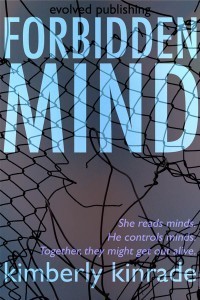 Forbidden Mind by Kimberly Kinrade
Forbidden Mind by Kimberly Kinrade
"Do not make any plans on the day you begin, as once you start, you will not be able to put it down." – L.M. Stull
"…hooked me in from the beginning." – L.E. Manning
"This book was fantastic!" – P. Larsen
"Forbidden Mind is beautifully written and worth your reading time." – BookWormSans
"Definite must read. For once you start, you simply can't stop. 5 out of 5 stars!" – H. Badgwell
~~~~~~~~~~
Summary
Sam thinks she's months away from freedom. After spending her life in a secret school, rented out to the rich and powerful as a paranormal spy, she is ready to head to college like any normal eighteen-year-old.
Only Sam isn't normal. She reads minds. And just before her big going-away party, she links to the mind of a young man who changes everything.
Drake wasn't raised as a 'Rent-A-Kid.' He was kidnapped and taken there by force. But his exceptional physical strength and powers of mind control make him very dangerous, especially to Sam.
When they meet, Sam is forced to face the truth of her situation, and to acknowledge that not all is as it seems in her picture-perfect world. For what awaits her on her eighteenth birthday isn't a trip to college, but an unexpected nightmare from which she may not be able to escape.
To survive, they must work together.
But will their powers be enough to save them before it's too late?
~~~~~~~~~~
The Sword of Oops by D.T. Conklin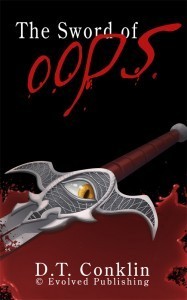
"This is a fun read. You will laugh at several points. This story is something you can finish on your lunch break without issue. It's good for a day you are in need of a laugh." – M.J. Kaufmann
"Fun read." – N. Mazoni
"It reminded my of a Coen Brothers film in that it is very humorous, featuring bumbling characters caught up in something far beyond their comprehension. The Sword of Oops provides good solid laughs!" – J.R. Evans
~~~~~~~~~~
 Devane's Reality by Lane Diamond
Devane's Reality by Lane Diamond
"I've finally found someone in Lane Diamond who can actually write – no mistakes, perfect grammar and structure – a breath of fresh air. Lane Diamond weaves a logical thread through "Devane's Reality," until revealing an ending that, while not completely surprising, is both clever and satisfying. He offers a nice mix: funny, poignant, sad, intriguing – and I love the diary mechanism." – Steve Z.
"This haunting short story by talented author Lane Diamond explores the fragility of the mind, and shows that there is more than one kind of loneliness. I highly recommend this well-written short." – K. Kinrade
~~~~~~~~~~
"The story is a well-crafted character study about a doctor facing an interesting choice in his life. How he handles it and the perspective he maintains the entire time is what really makes this little gem glow!" – J.R. Evans
"I first discovered Lane Diamond through his short story "Devane's Reality." What can I say? I'm hooked on this guy. He just knows how to write. "Wind Tunnel" is, as a previous reviewer stated, a feel-good story. It's character-driven, and I enjoyed each of the two primary characters. The ending leaves the reader with some minor contemplation, which I actually enjoyed. Once again, I'm happy to recommend Lane Diamond." – Steve Z.
———-

September 15, 2011
Guest Blog: Tony Hooper #3
(Note: If you haven't read Tony's previous entries, you'll find #1 HERE and #2 HERE.)
~~~~~~~~~~
June 6, 1995
Of all the demons I battle, I fear none more than… fear. Yes, my life teems with just such wretched ironies.
Fear—the ill-begotten mistress of our darker side, the primeval emotion that disturbs us, threatens us, yet invigorates us. How does our imagination conjure that which frightens with such paralyzing clarity? How does fear, with such remarkable intensity, sharpen our senses, casting a light on the darkness from which we seek to hide?
Profound fear may tear the very fabric of our being, exposing our soul to the evils that hide within, evoking self-recrimination and self-examination. It may even encourage us to analyze what lay beyond that final frontier, that shadowy and elusive eventuality of which we have neither knowledge nor understanding, of that which we are unable or unwilling to accept—our own death.
Perhaps, if we are blessed, the vessel we call fear, like the time it stubbornly occupies, will pass us by with little more than an acknowledgement. How else might we laugh again? How else might we love again? How else might we hope again?
Persistent fear forces us to reexamine our faith, to restore its relevance, to breathe into it new life, to obey its every command as though we can actually hold at bay our imminent end, our certain self-destruction. We must do this, lest the life of here and now, this one moment in an endless marching of moments, becomes little more than a blank stare, an empty page.
Even now, mortality, as it did seventeen years ago, lingers above me like the hangman's noose. Yet it looms more ominous than ever, as if it will drop down around my neck at any moment. Whom shall I fear if not the man I've long called the devil, the grim torturer who conquered my aspirations, leaving me, like Alexander weeping over his domain, without a recognizable world of my own?
Or is it me that I fear? The man I've become? The man Mitchell Norton made me?
As I stand upon the edge of the abyss, this much I know: I'd better find an answer. Soon.
———-
Link to 1st 5 Chapters of: Forgive Me, Alex
———-

September 14, 2011
An Evolved Publishing Interview with L.M. Stull
Indie author and blogger L.M. Stull has graciously interviewed me regarding our Evolved Publishing venture.

Please visit her site and read the interview HERE.
'Til next time, and as always, remember: To write well, you must work hard. To succeed in this tough gig, you mustn't be lazy (or discouraged).
———-






